Assessment of influence of facemask treatment with skeletal anchorage on the temporomandibular joint using magnetic resonance imaging: a preliminary study
Artigo Original
Objective: The aim of the study was to investigate the influence of facemask treatment with skeletal anchorage on the temporomandibular joint (TMJ) using magnetic resonance imaging (MRI), in patients with Class III malocclusion, accompanied by maxillary retrusion. Methods: Fifteen patients with a mean age of 12.1±1.43 years were included in the study. All patients were treated using facemask with skeletal anchorage after eight weeks of Alternate Rapid Maxillary Expansion and Constriction (Alt-RAMEC) protocol. Magnetic resonance imaging was performed before and immediately after facemask...
Autores: Demet Kaya, Ilken Kocadereli, Isil Saatci,
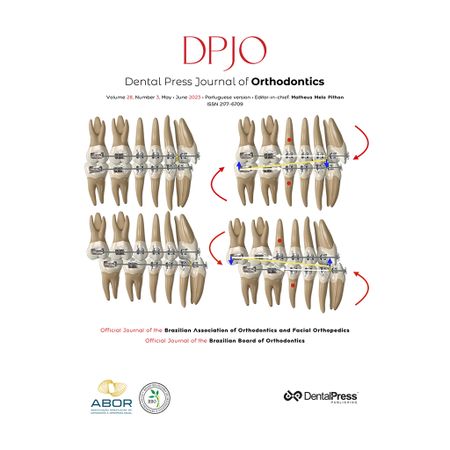
Disponível em InglêsIntrodução: Simulações aprimoradas por tecnologia parecem ser eficazes em Odontologia, pois podem ajudar os estudantes a melhorar suas competências em ambientes simulados. No entanto, a implementação dessa tecnologia na educação ortodôntica ainda não foi revisada. Objetivo: A presente revisão de escopo teve como objetivo resumir, de forma abrangente, o uso de simulações aprimoradas por tecnologia na prática ortodôntica. Métodos: Uma busca sistemática...
Leia mais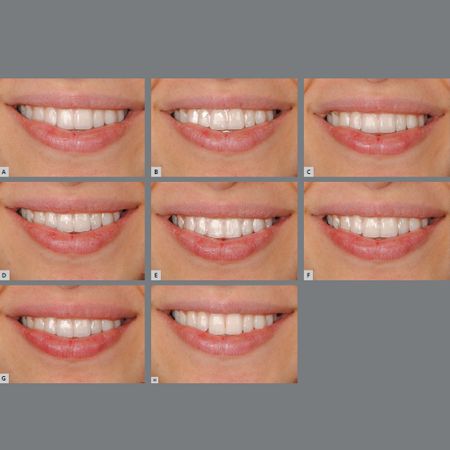
Disponível em InglêsObjetivo: Comparar diferentes sistemas de tratamento com alinhadores transparentes (CAT), quanto à atratividade, aceitabilidade, visibilidade e disposição a pagar, por parte de alunos (primeiro e último anos) e instrutores de Odontologia. Métodos: Um questionário elaborado para coletar informações sobre preferências e intenções estéticas, em relação a sete sistemas CAT, foi distribuído para 120 alunos de graduação e instrutores do Academic Centre for...
Leia mais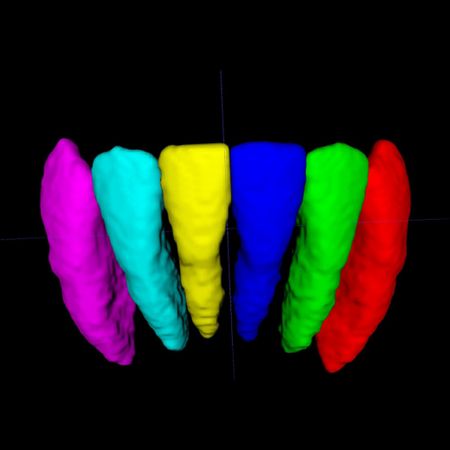
Disponível em InglêsObjetivo: Desenvolver um método de segmentação dentária bem detalhado e reprodutível, para quando for necessário quantificar as medidas volumétricas dos dentes. Material e Métodos: Esse foi um estudo in vitro no qual incisivos inferiores e caninos de cinco pacientes foram reconstruídos em 3D por meio de um processo de segmentação automática com refinamentos manuais. Todas as imagens de TCFC foram obtidas usando tamanho de voxel de 0,3 mm. O software utilizado...
Leia mais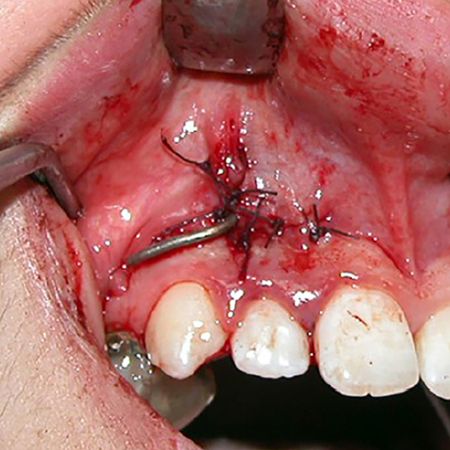
Disponível em InglêsObjetivo: O objetivo desse estudo foi investigar a influência do tratamento com máscara facial com ancoragem esquelética na articulação temporomandibular (ATM), por meio de ressonância magnética (RM), em pacientes com má oclusão de Classe III acompanhada de retrusão maxilar. Métodos: Quinze pacientes com idade média de 12,1±1,43 anos foram incluídos no estudo. Todos os pacientes foram tratados com máscara facial com ancoragem esquelética após oito...
Leia mais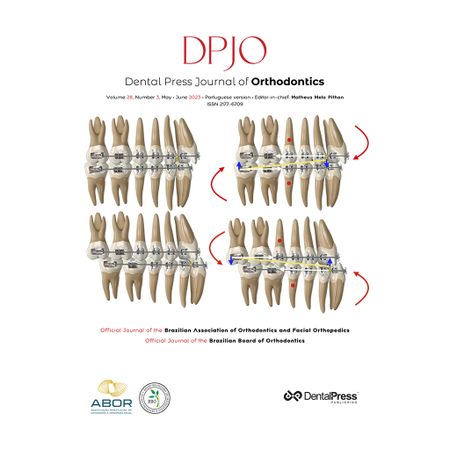
Disponível em InglêsObjetivo: Explorar a associação entre as idades cronológica, dentária e esquelética e o diagnóstico precoce da agenesia dos terceiros molares. Material e Métodos: Este estudo radiográfico retrospectivo compreendeu uma amostra de 282 pacientes portugueses (122 homens e 160 mulheres) que procuraram tratamento ortodôntico entre 2007 e 2018. Cada participante tinha radiografias panorâmicas e cefalométricas laterais realizadas antes e depois dos 14 anos de idade. A...
Leia mais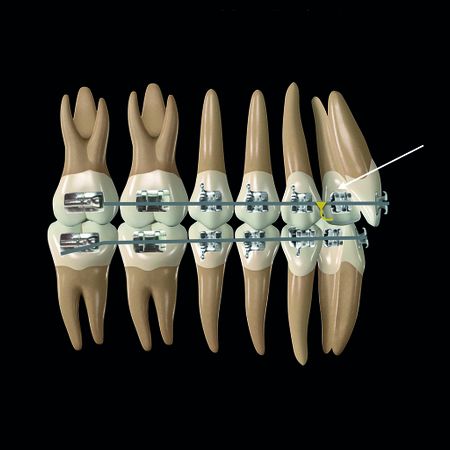
Introdução: Os elásticos intermaxilares são recursos ortodônticos amplamente utilizados nas diversas más oclusões. Possuem como principais vantagens o baixo custo, fácil inserção e remoção pelos pacientes, e versatilidade de aplicação. Como desvantagens podemos destacar a necessidade de cooperação dos pacientes e os efeitos colaterais normalmente presentes nos tratamentos com esse recurso. O conhecimento da biomecânica envolvida no uso dos elásticos intermaxilares é...
Leia mais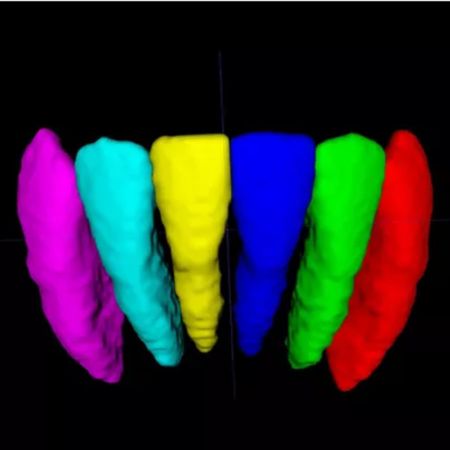
Objective: To develop a well-detailed and reproducible tooth segmentation method, when quantifying tooth volumetric measurements is needed. Material and Methods: This was an in vitro study in which lower incisors and canines of five patients were 3D reconstructed by means of an automatic segmentation with manual refinements process. All the images were obtained using a 0.3-mm voxel size CBCT imaging. The software utilized was the ITK-SNAP®. The primary outcomes were the intra-rater and...
Leia mais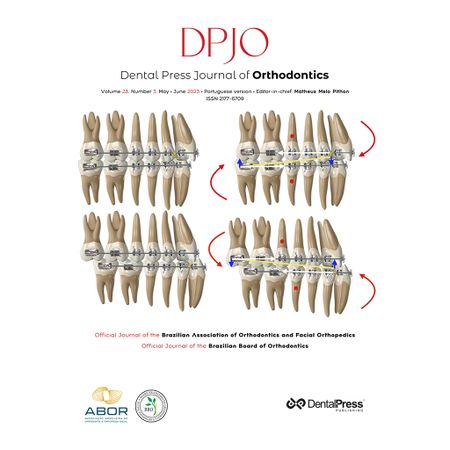
Objective: To explore the association between chronological, dental and skeletal ages and early diagnosis of third molars agenesis. Material and Methods: This retrospective radiographic study comprised a sample of 282 Portuguese patients (122 males and 160 females) who sought orthodontic treatment between 2007 and 2018. Each participant had panoramic and lateral cephalometric radiographs performed before and after the age of 14 years. The chronological age was categorized into three...
Leia mais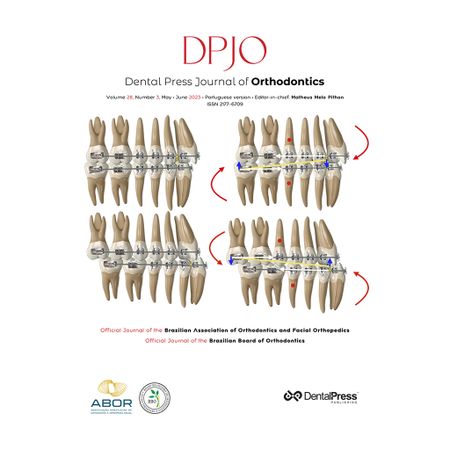
Introduction: Technology-enhanced simulations seem to be effective in dentistry, as they can support dental students to improve competencies in simulated environments. However, implementation of this technology in orthodontic education has not been reviewed. Objective: This scoping review aimed to comprehensively summarize the use of technology-enhanced simulations in orthodontic practice. Methods: A systematic search was conducted to identify literature on technology-enhanced...
Leia mais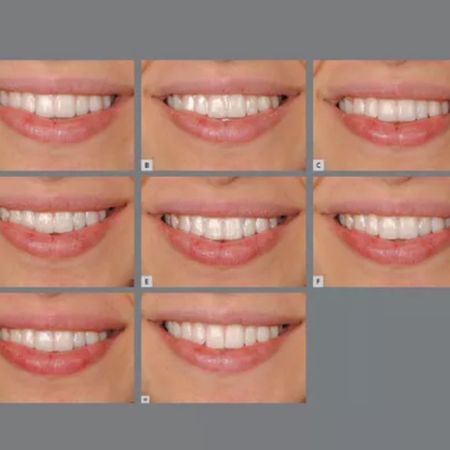
Objective: To investigate the attractiveness, acceptability, visibility and willingness-to-pay for clear aligner therapy (CAT) systems in first-year and final-year dental students and instructors. Methods: A questionnaire designed to collect information regarding esthetic preferences and intentions related to seven CAT systems was handed out to 120 undergraduate students and instructors at the Academic Centre for Dentistry Amsterdam (ACTA). Proportional odds models and population average...
Leia mais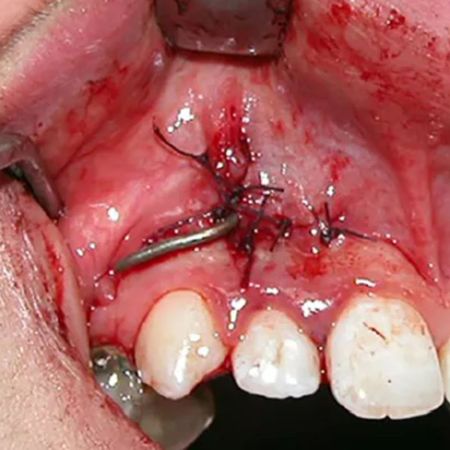
Objective: The aim of the study was to investigate the influence of facemask treatment with skeletal anchorage on the temporomandibular joint (TMJ) using magnetic resonance imaging (MRI), in patients with Class III malocclusion, accompanied by maxillary retrusion. Methods: Fifteen patients with a mean age of 12.1±1.43 years were included in the study. All patients were treated using facemask with skeletal anchorage after eight weeks of Alternate Rapid Maxillary Expansion and Constriction...
Leia mais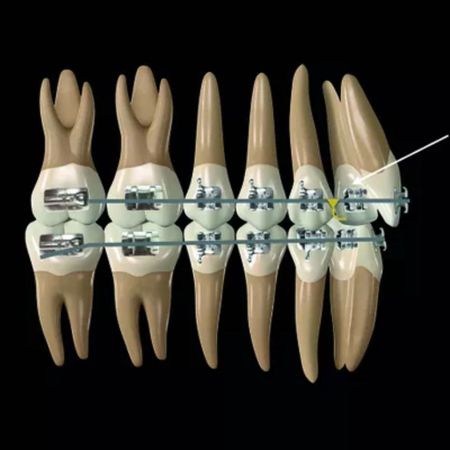
Introduction: Intermaxillary elastics are orthodontic resources widely used in various malocclusions. Their main advantages are low cost, easy insertion and removal by patients, and application versatility. As main disadvantages, we can highlight the need for cooperation from patients and the side effects normally present in treatments with this resource. Knowledge of the biomechanics involved in the use of intermaxillary elastics is essential to take full advantage of the desired effects...
Leia maisCopyright © 1998 - 2022 DentalGO | Todos Direitos Reservados. DentalGO é uma marca Dental Press